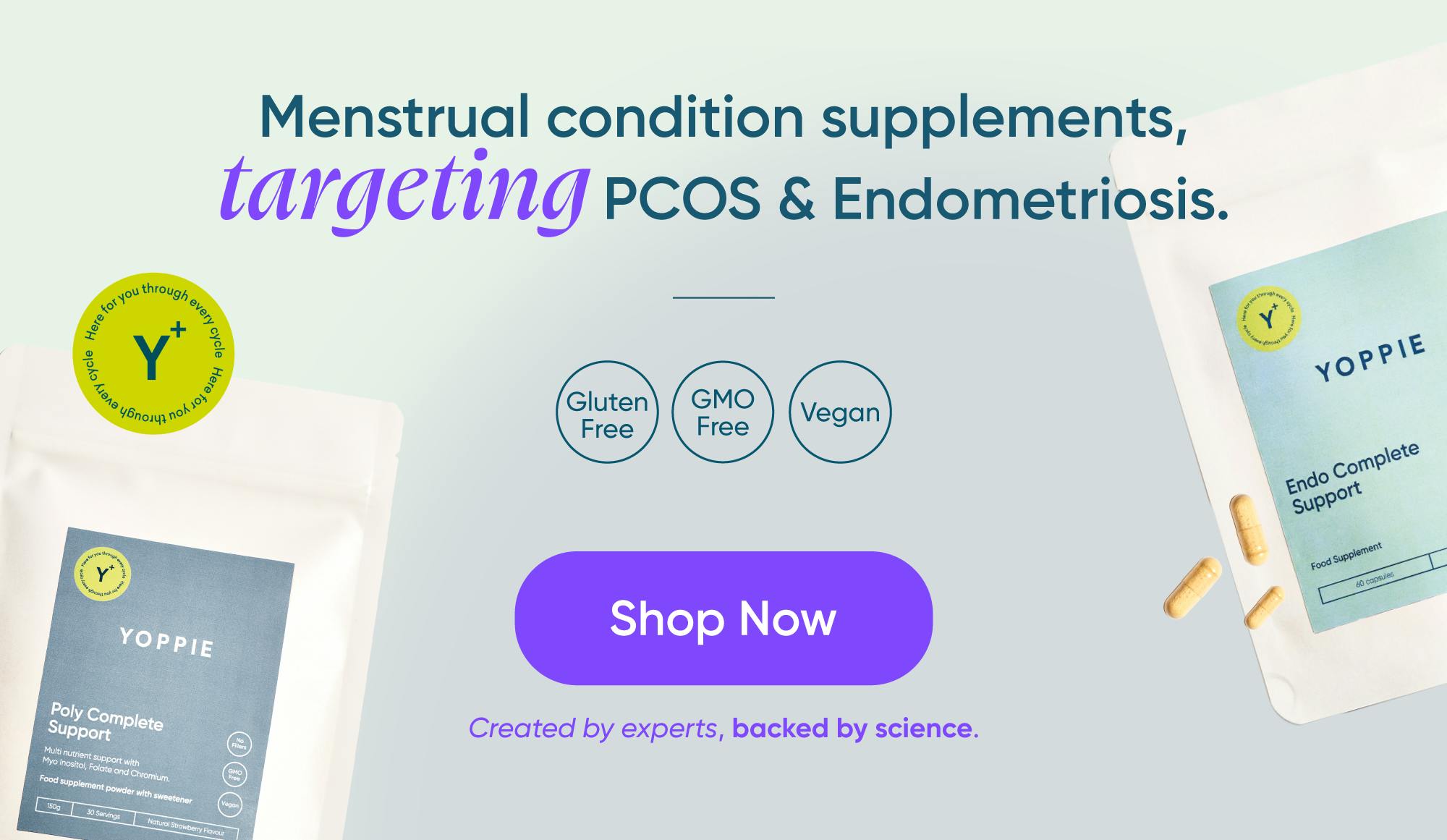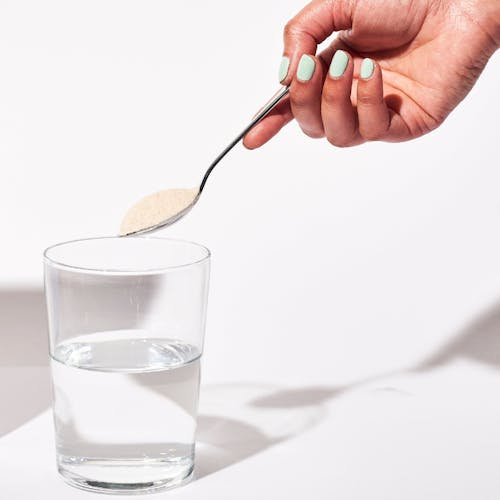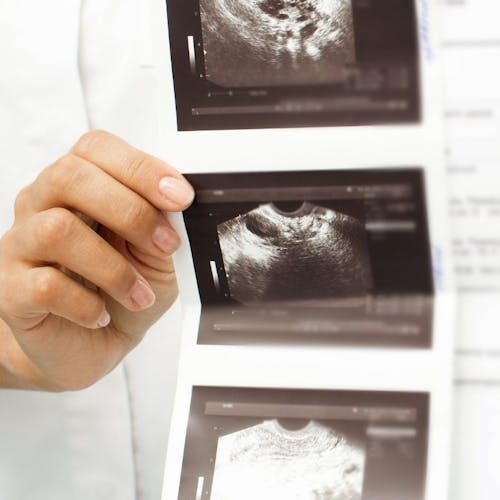This website uses cookies to enhance the user experience. By using Yoppie you are agreeing to our use of cookies.
What are the first signs of PCOS? How to spot if you might have it
Written by Yoppie
08 Jun 2022
Firstly… what is PCOS again?
What are the main symptoms?
How early can PCOS develop?
What are the first signs to watch out for?
Am I likely to end up with PCOS?
So… do I have PCOS?
We’re on a mission to create the most extensive library of articles for you on all the different hormonal issues you might face throughout your life, and since PCOS is a common one, we’re diving back into this topic today. If you’re wondering if you have this condition, there are a few early-stage signs and symptoms to watch out for. Let’s take a look…
Firstly… what is PCOS again?
PCOS is an acronym for polycystic ovary syndrome - a fairly common hormonal imbalance. The exact cause is unknown, but there are a few factors thought to possibly contribute to the problem, such as inflammation in the body, a family history of PCOS, excess androgen hormones, or excess of (and resistance to) the hormone insulin, which is the one the pancreas makes to allow your cells to use sugar for energy.
What are the main symptoms?
Not everyone with PCOS will experience the same symptoms. In fact, two people with the same condition could present with wildly different symptoms, making it difficult to diagnose properly. The most common PCOS symptoms range from mild to severe, and can include missed/irregular periods, very light/heavy periods, excess body hair on the chest, stomach and/or back (known as hirsutism), weight gain, skin issues relating to oily skin, thinning hair on the head, and fertility issues. Though these symptoms can all develop over time, the early stages of PCOS may look a little different.
How early can PCOS develop?
It’s estimated around 5-10% of people with periods between the ages of 15 and 44 have PCOS. It typically coincides with menstruation, meaning only those who have gone through puberty and who still get a period can have PCOS. Those in the prepubescent or menopausal age range don’t need to worry.
It’s common to discover PCOS later in life while trying to get pregnant, but it can be present in your body without symptoms from as early as age 11, or as soon as you hit puberty. In some cases, it can develop in the 20s or 30s, even with no previous symptoms.
What are the first signs to watch out for?
It can be a very frustrating condition because just like the later stage symptoms can differ from person to person, so can the early stage symptoms, making it difficult to diagnose. However, understanding the early signs is helpful so you can keep track of symptoms and see a doctor if needed.
The most common symptoms to appear first are missed periods, an irregular cycle, weight gain (particularly around the abdomen), and acne or oily skin. The most obvious sign is usually an irregular period, as this is easy to see each month (or not see, as the case may be!). Symptoms like weight gain are less obvious as this can fluctuate, and acne can also be a symptom of general puberty, so it’s less clear what this could mean.
Irregular periods relating to PCOS are unlikely to be just a couple of days late; they might be particularly heavy or particularly light periods, with a cycle length longer than 35 days. Those with PCOS may also get less than 8 menstrual cycles a year due to lack of progesterone.
Am I likely to end up with PCOS?
PCOS is very common, and sometimes it feels like there’s no rhyme or reason for it developing other than to annoy the heck out of us! However, certain factors have been found to contribute to the likelihood of developing the condition. For example, you may be more susceptible to PCOS if your parent or sibling has the condition, or if you experienced ‘precocious puberty’, which is when a person gets their first period before the age of 8. This is thought to have links to PCOS, as one 2010 study found those who had undergone precocious puberty had an increased risk of developing PCOS.
Even with this advanced knowledge, PCOS can’t actually be diagnosed until two or three years after an adolescent has had their first menstrual cycle because those first couple of years are likely to be irregular anyway thanks to fluctuating hormones.
So… do I have PCOS?
It’s not easy to tell if you are more likely to develop PCOS in your lifetime, but understanding your risk factors and spotting early signs and symptoms could help you get the diagnosis you need to start any treatment options early. If you suspect you may have PCOS due to any of the symptoms above, speak to your doctor so they can take a closer look.
It is important to remember you are not alone! Several females in the public eye have spoken out about their struggles :
“Even when I was 17, I thought there might be a problem and that I’d have trouble conceiving because my periods were irregular,” explained Jools. “I was quite quickly diagnosed with PCOS, which meant that I wasn’t ovulating each month like normal.”
Jools Oliver, Children's book author & wife of chef Jamie Oliver
“The side effects can be brutal — like weight gain and bad skin. I went to a great doctor, and the minute she looked at me, she was like, ‘Oh, you have PCOS.’ It explained everything"... Through diet, I have been able to manage [my symptoms]"
Lea Michelle, Glee star
Want to find out more about PCOS? You can ask questions in our Full Stop FB group, or reach out to the Yoppie team on Instagram at @itsyoppie so we can help. Yoppie have recently launched a new PCOS supplement to target all the common symptoms, created by experts and backed by science. Find out more here.
Don't forget that our personalised menstrual cycle subscription box can get organic tampons, PCOS supplements and much more delivered easily and regularly through your letterbox, to give you just a bit more peace of mind each cycle.
Section jump
Back to top
Subscribe To Our Newsletter
YOPPIE





© 2026 Yoppie is a registered trademark of Phlo Technologies Ltd.
Yoppie's supplements are not a substitute for a varied diet and healthy lifestyle and are not intended to diagnose, treat, or cure any disease. If you are pregnant, breastfeeding, have a medical condition or are under medical supervision, please consult with your doctor before taking any of our products.







